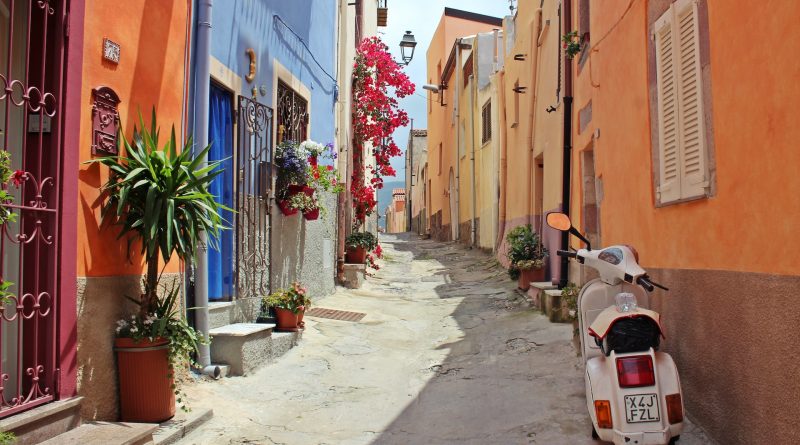Italy – Language, Culture, Customs and Etiquette
Italy is an enchanting country, full of culture and history. Its language, culture, customs and etiquette are as diverse as its landscape.
Exploring the Rich Language and Culture of Italy
Exploring the rich language and culture of Italy is an exciting way to experience a new country. From its ancient Etruscan roots to its more contemporary Roman foundations, the Italian language has been around for centuries, growing into one of Europe’s most popular languages today. It is a beautiful language with unique nuances, dialects, and structure that set it apart from other Romance languages.
But language is only part of the Italian experience. Italy’s culture is also incredibly rich and varied, as demonstrated by its diverse range of culinary delights, art galleries, shopping districts, and cultural sites. From the awe-inspiring Sistine Chapel to the bustling Piazza Navona, Italy offers something for everyone. A visit to Rome is an opportunity to explore the roots of Western culture, while a stroll through Florence reveals stunning Renaissance art and architecture.
The best way to fully experience Italian culture is to immerse yourself in it. Attending language classes or signing up for cooking lessons are great ways to learn more about the Italian language and its vibrant culture. You can also attend festivals or explore local markets to experience Italian music, art, and cuisine first-hand. By engaging with locals and trying new things, you’ll gain a deeper understanding of Italy’s unique identity.
Understanding Italian Customs and Etiquette – A Guide
Italians are a proud people with strong ties to their cultural heritage. They have certain customs and etiquette that must be respected when visiting the country. It’s important to understand some of these customs and etiquette to make your visit more enjoyable and memorable.
One of the most important italian document translation services customs is the art of conversation. Italians enjoy talking, and conversation is an important part of the culture. When conversing with someone, it’s polite to make eye contact, maintain a steady voice volume, and listen attentively.
Italians also have certain greetings that should be observed when meeting someone new or even saying goodbye. Handshakes are common among men, while women may exchange kisses on the cheek.
It is important to dress conservatively when in Italy, as Italians take pride in their appearance. Women should cover their arms and legs, and men should avoid wearing shorts or sandals.
Another important Italian custom is the use of body language. Gestures are often used to convey meaning, so it’s important to observe how Italians use their hands and bodies to communicate.
When eating out in Italy, there is a certain etiquette that must be followed. For example, it is polite to wait for everyone at the table to be served before beginning to eat. Additionally, it is customary for each person at the table to order something different so that everyone can try a variety of dishes.
Finally, when visiting Italy, it’s important to remember that Italians value respect and politeness. Respect their culture and customs by speaking softly, being mindful of your body language, and using appropriate greetings. This will ensure that your visit is both enjoyable and respectful.
An Introduction to the Fascinating World of Italy
Italy is a country of beauty and fascination. With its dramatic mountains, idyllic islands, sunny beaches, ancient ruins, and vibrant cities – it can be hard to know where to start when exploring the country. But no matter which part of Italy you choose to visit, you’re guaranteed an unforgettable experience.
Italy is home to some of the world’s most iconic cities. Rome is an ancient city with a wealth of history, art, and culture. Milan is known for its fashion, nightlife, and excellent Italian cuisine. Florence has become famous for its Renaissance artistry and architecture. And Venice can be explored through its picturesque canals and stunning buildings.
When visiting Italy, you’ll also want to explore its stunning countryside. The rolling hills of Tuscany offer incredible views and a chance to sample some of the region’s renowned wines. The Dolomites in the north are a popular destination for skiing and mountain climbing. And the Amalfi Coast is famed for its breathtakingly beautiful beaches and coastal villages.
Italy also offers a wealth of cultural experiences. From the Opera in Rome to the art galleries of Florence, there is something for everyone. You can visit ancient ruins such as the Colosseum or hike up Mount Vesuvius to experience its spectacular views. And don’t forget to sample the local food – Italy’s cuisine is renowned for its delicious flavors and fresh ingredients.
Navigating the Cultural Norms of Italy
Navigating the Cultural Norms of Italy can be a challenge. The culture in Italy is unique, with its own set of expectations and customs that may differ from other places you have visited. To ensure a successful visit to Italy, it is important to learn about the country’s cultural norms and etiquette beforehand.
One important thing to remember is the importance of respect for authority figures. Italians are likely to be more formal and show greater respect to those in positions of power. It is also important to remember that personal space is not as respected as it is in other countries. While Italians can be quite friendly, they may stand closer than you are used to while having a conversation.
